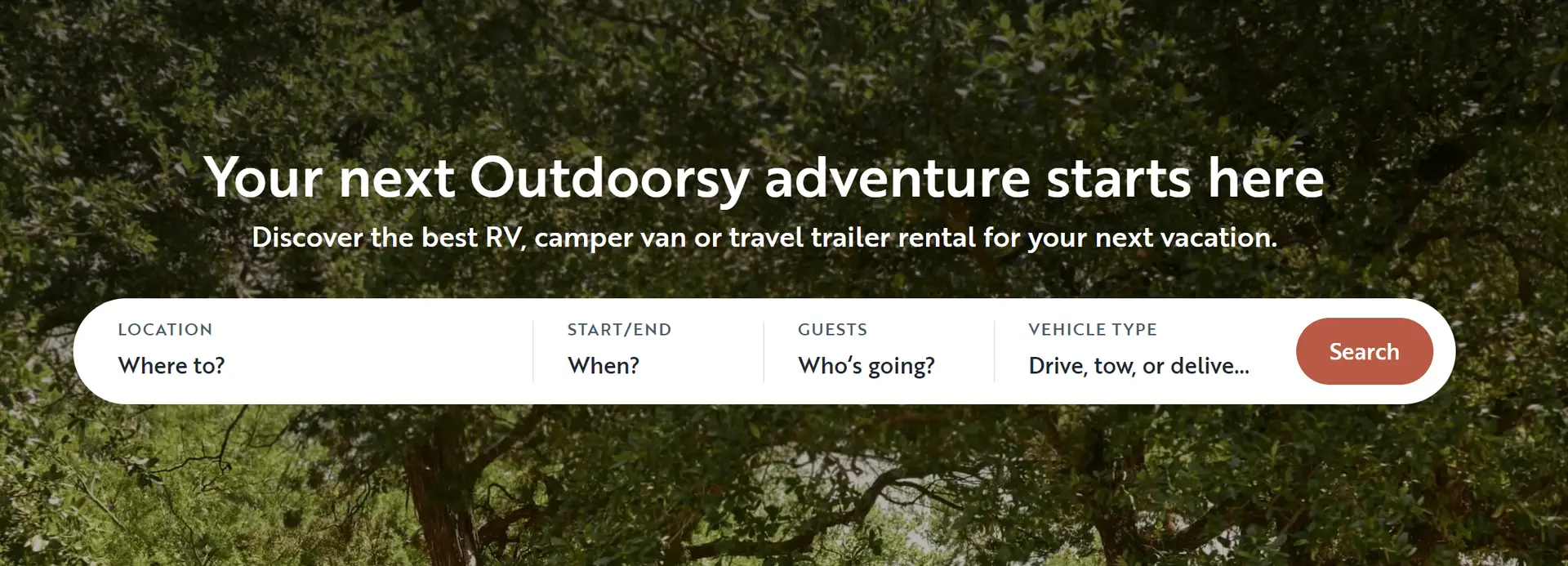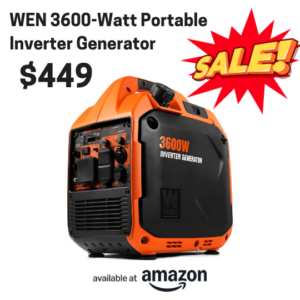RV Warranties… the part of RVing no traveler wants to think about.
It’s protection for the worst-case scenarios, and serves only as peace-of-mind in the best case.
Is an RV extended warranty right for you? Do you need it if you already have insurance?
We answer both those questions and more in today’s ultimate guide to RV warranties!
Note: Some of the links in this article are affiliate links. This doesn’t cost you any more than normal. Read our disclaimer for more info.
Table of Contents
- What is an RV extended warranty?
- I already have RV insurance. Do I need an extended RV warranty?
- What’s the benefit of an RV warranty?
- Who sells extended RV warranties? Can I only get it through my dealer?
- What does an extended RV warranty cover?
- What isn’t covered by a warranty?
- How much does RV extended warranty coverage cost?
Editor’s Note: Article written by Wholesale Warranties, the leading provider of RV Extended Warranties direct to consumer. With a focus on education, customer service and reliable coverage, Wholesale Warranties has established themselves as the premier option for RVers looking to protect the road ahead.
To work with a highly trained RV warranty specialist on an RV protection quote for your home-on-wheels, please call 800-939-2806 or visit wholesalewarranties.com.
What is an RV extended warranty?
An RV extended warranty is protection that extends beyond your manufacturer’s warranty to cover the cost of repair for many mechanical and electrical failures that occur in your rig during the lifetime of the policy. These contracts should clearly define
what is and is not covered on your rig and typically offer between 1 and 7 years of coverage.
Before we dive into the details, it’s important to understand that what is commonly referred to as an “extended warranty” is actually called an extended service contract. The term “warranty” implies that there is an affiliation with the vehicle’s original factory warranty.
The coverages offered by both dealerships and online brokers are extended service contracts, but are commonly referred to as warranties. The terms are used almost interchangeably, so we’ll use both names throughout this post.
I already have RV insurance. Do I need an extended RV warranty?
When it comes to RV protection, most travelers have trouble distinguishing between RV insurance and warranty coverage—and are often left wondering if they need both.
Simply put, you’re required by law to have comp and collision RV insurance while driving a motorhome in the United States. If you own a towable RV, insurance may be optional depending on the state you reside in.
By contrast, a warranty is not a legal requirement. These policies offer optional coverage to protect against the things that insurance doesn’t cover, such as engine failure.
What’s the difference between RV insurance and an RV warranty?
Insurance is designed to cover costs associated with incidents like collision, natural disaster, and theft. Conversely, an RV warranty will cover the repair expenses for all the components that make your RV move when these failures are not associated with collision or physical damage. Warranties cover unexpected breakdowns and failures—insurance does not.
Warranties are often viewed as an additional peace-of-mind purchase on your unit, whereas insurance is a requirement. Having both policies is the best option to secure yourself against any damages that can occur while on the road.
What’s the benefit of an RV warranty?
Repair costs are constantly rising. As RVs become increasingly complex, the demand and cost for highly skilled labor and technical parts increases as well.
As of December 2023, the average labor rate for RV repair is $140 per hour, while parts range between present a wide range starting around $200. That means you’ll be paying $340 per hour at minimum for repairs out of pocket. Additionally, this figure likely increased at the turn of the new year.
An RV warranty benefits your rig and your wallet by paying your repair bill so you can use your travel budget on what it’s meant for: adventure!
In addition to the high cost of repairs, statistics also show that RVs have a very high chance of breakdown. In fact, 30% of all RVs will suffer a major mechanical failure by their 2nd year on the road, right when the protection of your manufacturer coverage has expired. From there, the odds increase to 80% by their 5th year, and nearly every RV suffers a major mechanical failure by their 8th year in service. RVs break down, and repair costs are only expected to go up.
Beyond the immediate relief to your bottom line, warranties also help increase the resale value of your rig should you decide to sell. Not only does it indicate that the RV was properly maintained, but the contract can provide extra value when the policy is transferred to your prospective buyer.
Who sells extended RV warranties? Can I only get it through my dealer?
There are two primary options when it comes to purchasing an extended warranty, but the quality and customer service you receive will vary. You can either purchase coverage through an online broker or through your dealership when you’re buying a new unit.
Just like there are major differences on where you purchase an RV, there are factors that differentiate buying a warranty through an online broker versus a dealership.
The main traits that determine the quality of the seller include:
- Options available
- Contract specialists
- Post-purchase support
- An unlimited network of repair facilities
As a buyer, you’ll want to purchase a personalized policy that suits your travel style and rig. Make sure your salesperson is an expert on warranties in addition to RVs and can explain the policy in black and white terms so you understand exactly what is and is not covered by your plan.
You should never buy a policy if you haven’t seen the full terms and conditions, or from a provider who can’t answer your questions and concerns about the contract.
Beyond that, you’ll want someone who will stand by you throughout the duration of your policy. This means you should look for a company who will bat for you when you inevitably submit a claim. These specialists will help guide you through each step of the claims process.
Lastly, you’ll want to make sure you can take your motorhome or towable RV to any licensed repair shop. Because your rig is meant for traveling, you should ensure you’re covered if an emergency occurs while you’re away from home, or away from the dealership you purchased the policy from.
What does an extended RV warranty cover?
Extended warranties are built to cover expenses associated with the failure of mechanical and electrical components in your trailer or motorhome. Depending on the level of coverage purchased, this can include everything from a diesel engine and transmission to slide-outs, leveling systems, appliances, heating and cooling systems, and more.
The two most common levels of coverage you will find are known as comprehensive and exclusionary policies.
A comprehensive policy will list everything that is covered. This means that if something in your rig fails and isn’t listed in the contract, it won’t be covered by the warranty.
On the other hand, an exclusionary policy will do the opposite. It will list every component that’s excluded from coverage. If the failure that occurs is not on this exclusions list, then it will be covered. Exclusionary coverage is the most extensive option, as it truly weeds out any gray areas in coverage.
Another available option is a Basic or Powertrain Only policy, which cover the most catastrophic possible failures to items such as your transmission, engine, and drive axle.
Picture this: you’re traveling through the southwest, near Tucson, Arizona. You stop in a campground to get some rest before the remainder of your drive…only to find out your air conditioning is completely shot. You’re not that handy, and you can’t figure out which part of the component is failing. Meanwhile, it’s a sweltering 107 degrees outside.
A good RV extended warranty is designed for scenarios like this. With a protection plan in place, you simply need to call a mobile mechanic to come out to you, diagnose the problem, and acquire pre-authorization before starting repair work. Within a few hours, all cooling systems are good to go and you can take it easy with a cold beverage in hand—having only paid one low deductible.
In another case, maybe you are a handy RVer who can address all routine maintenance and everyday problems yourself.
But when your refrigerator fails on the family trip you’ve spent months planning, you just don’t have the tools to pull it through the windshield and re-install a new one. Plus, the cost of a new refrigerator will put a dent in your travel fund. However, if you have an RV warranty plan, you’ll just need to get your pre-authorization, have a repair facility or mobile mechanic complete the repair job, and get back on the road with your family.
What isn’t covered by a warranty?
Not everything will be covered under an RV extended warranty. It’s important to work with an upfront salesperson who will walk you through policy limitations. As mentioned above, anything that would be covered by your RV insurance, such as damages caused by collision or weather, will be excluded by warranties.
Generally, things like upgrades, lamps, and weather stripping will not be covered by an RV extended warranty. Maintenance items like belts, hoses, and brake pads, as well as maintenance services like oil changes will also be excluded, as these items are subject to regular wear and tear.
Aesthetic items such as paint and furniture are neither mechanical nor electrical, so they’re not included within the scope of coverage. This is a bonus for many RVers who enjoy DIY renovation projects. When it comes to aesthetic upgrades, you can paint to your heart’s content without worrying about voiding your coverage.
Coverage levels vary between providers, and you should always read your policy cover to cover before you purchase. Ask for the exact terms and conditions when considering a warranty, and read the fine print thoroughly so you have realistic expectations on what will and will not be covered.
How much does RV extended warranty coverage cost?
Depending on where you buy and the level of coverage you purchase, the cost of an RV extended warranty will vary.
The major factors likely to play a role in pricing include your vehicle’s mileage, age, make, model, and value.
You’ll often find that locking in many years of coverage at once will provide the best average per year pricing as well. Always shop around and educate yourself. A less expensive contract may mean you aren’t getting the level of coverage desired. Similarly, more expensive doesn’t always mean better quality.
Normally, the cheapest warranty with the longest term you can purchase is when your vehicle is still under its manufacturer’s warranty. That window is the best time to lock in the best possible policy.
Companies determine the price of the policy based on the risk associated with your RV. When you no longer have the manufacturer’s coverage on your vehicle, you’re considered higher risk for warranty providers. Additionally, prior to signing your contract, you may be required to submit to an inspection because your rig will be considered “used.”
If price is a concern for you, consider securing coverage prior to the factory warranty’s expiration to get the biggest return where it matters most: your wallet. We’ve covered some important points in this post, but there’s still a wealth of knowledge out there, so make sure to do your homework. When choosing a warranty provider, read reviews on sites like Google, Customer Lobby, and the Better Business Bureau. Check out major RV organizations and scroll through popular RV forums to see which companies they recommend. RVers tend to share their real-life experiences unfiltered, so you may be able to gauge how valuable coverage is based on reviews alone.
If you’re ready to purchase a quality warranty policy with unparalleled customer support, visit Wholesale Warranties online or give us a call at 800-939-2806.




